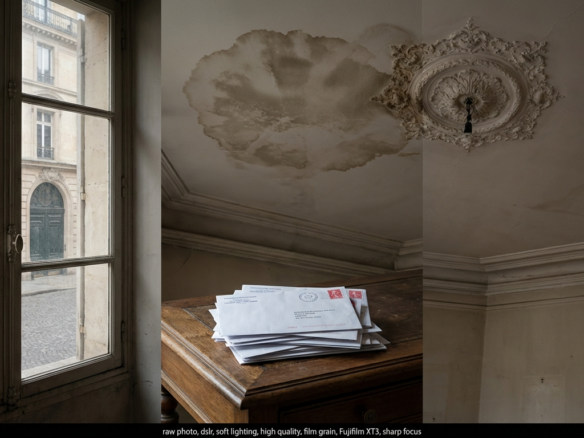Italy’s Golden Visa program has emerged as a compelling pathway for high-net-worth individuals and international investors seeking to establish a foothold within Europe’s rich cultural and economic landscape. As a seasoned European real estate professional, I recognize the strategic importance of understanding the nuances of Italy’s investment options, especially in a climate where global mobility and diversified portfolios are more critical than ever. This article delves into the intricacies of Italy’s Golden Visa, analyzing current trends, investment opportunities, and the broader implications for foreign investors eyeing the Italian and European markets.
Get 50% OFF!
Subscribe to our newsletter and enjoy a 50% discount on all listing packages, no strings attached!

Understanding Italy’s Golden Visa Program: A Gateway to Europe
Introduced to attract foreign capital and stimulate economic growth, Italy’s Golden Visa program offers residency rights to non-EU nationals who make qualifying investments in the country. Unlike traditional visas, the Golden Visa provides a streamlined route to long-term residence, with the potential for eventual citizenship, contingent on fulfilling specific residency requirements.
Key features of Italy’s Golden Visa include:
- Investment thresholds starting from €250,000 in innovative startups or cultural projects.
- Real estate investments, typically requiring a minimum of €500,000 in property acquisitions.
- Investment in government bonds or companies, with varying minimum amounts.
- Residency rights granted upon approval, with the possibility of renewing and eventually applying for citizenship after ten years.
Current Trends and Insights in Italy’s Investment Landscape
Recent data indicates a surge in interest among international investors, particularly from Asia, the Middle East, and North America, seeking to capitalize on Italy’s cultural allure and strategic location within Europe. The COVID-19 pandemic, while initially dampening global mobility, has also prompted a reevaluation of investment priorities, with many viewing Italy’s Golden Visa as a stable and attractive option for diversification.
One notable trend is the increasing preference for high-end residential properties in iconic cities such as Rome, Milan, and Florence. These markets have demonstrated resilience, driven by a combination of domestic demand and foreign investment. Additionally, the government’s focus on revitalizing less-developed regions through targeted incentives has opened new avenues for investors interested in rural and historic properties.
From a macroeconomic perspective, Italy’s stable political environment, coupled with its rich cultural heritage and high quality of life, continues to bolster its appeal. Moreover, the country’s strategic position within the Schengen Area facilitates seamless travel across Europe, making it an attractive hub for global entrepreneurs and expatriates.
Strategic Investment Options for Foreign Residents
For investors considering Italy’s Golden Visa, understanding the most advantageous investment avenues is crucial. Here are the primary options, each with unique benefits and considerations:
Real Estate Investment
Real estate remains the cornerstone of Italy’s Golden Visa offerings. The minimum investment of €500,000 in residential or commercial properties can secure residency rights. Prime locations such as Milan’s luxury districts or Rome’s historic center offer high appreciation potential, especially as Italy continues to attract international luxury buyers.
Furthermore, recent reforms have incentivized investments in rural and historic properties, aligning with Italy’s cultural preservation goals. These properties often come with lower purchase prices and the potential for renovation grants, making them attractive for investors seeking both cultural engagement and financial returns.
Investment in Innovative Startups and Cultural Projects
Italy’s burgeoning startup ecosystem and cultural initiatives present alternative avenues for investment. A minimum of €250,000 in innovative startups or cultural projects not only grants residency but also aligns with Italy’s strategic focus on innovation and cultural diplomacy. These investments often qualify for additional incentives, including tax benefits and grants, fostering a dynamic environment for forward-thinking investors.
Government Bonds and Corporate Investments
Investing in Italian government bonds or equity stakes in local companies offers a more diversified approach. While these options may require higher minimum investments, they provide exposure to Italy’s economic sectors, including manufacturing, fashion, and tourism. Such investments can serve as a hedge against real estate market fluctuations and diversify an investor’s portfolio.
Implications for the European Real Estate Market
The influx of foreign capital driven by Italy’s Golden Visa program has notable implications for the broader European real estate landscape. Increased demand for luxury and historic properties has driven up prices in key cities, creating both opportunities and challenges for local developers and investors.
Moreover, the program’s emphasis on regional development has spurred revitalization projects in less-developed areas, fostering sustainable growth and cultural preservation. This aligns with broader European Union objectives to promote balanced regional development and integration.
For European investors, understanding Italy’s Golden Visa trends offers insights into emerging markets and potential collaborative opportunities. As the program matures, it is expected to catalyze cross-border investments, fostering a more interconnected European real estate ecosystem.
Legal and Regulatory Considerations
While Italy’s Golden Visa presents attractive opportunities, navigating the legal landscape requires careful planning. Investors should engage local legal experts to ensure compliance with immigration, tax, and property laws. Notably, Italy’s tax regime offers favorable conditions for foreign residents, including potential exemptions on certain income streams and inheritance taxes, subject to specific criteria.
Additionally, due diligence on property titles, renovation permits, and regional regulations is essential to mitigate risks and optimize investment returns. The Italian government’s commitment to transparency and investor protection further enhances the program’s credibility.
Looking Ahead: Opportunities and Challenges
As Italy continues to refine its Golden Visa framework, several opportunities emerge for discerning investors. The integration of digital platforms and streamlined application processes promises greater accessibility. Simultaneously, the country’s focus on sustainable development and cultural preservation aligns with global investment trends emphasizing ESG principles.
However, challenges such as market saturation in prime locations, regulatory complexities, and geopolitical considerations must be carefully managed. A strategic approach, leveraging local expertise and market insights, remains essential for maximizing the benefits of Italy’s Golden Visa program.
Conclusion: Embrace Italy’s Investment Potential
Italy’s Golden Visa program offers a unique blend of cultural richness, strategic location, and investment potential that appeals to global investors seeking a foothold in Europe. Whether through high-end real estate, innovative startups, or diversified financial instruments, the opportunities are vast and compelling.





Join The Discussion